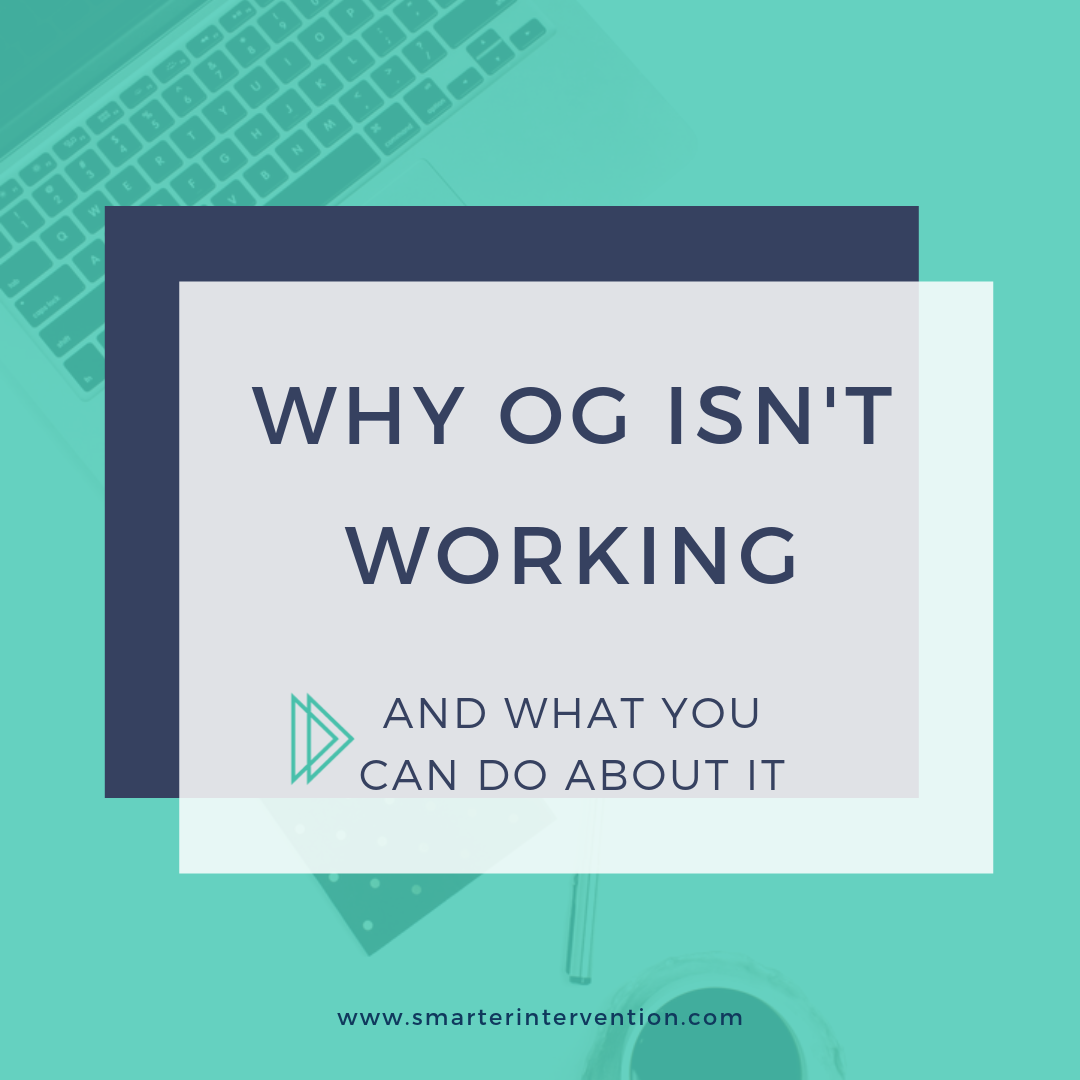Science-based literacy resources and articles
for families, educators and schools
Search by Category:
Categories
- Advocacy
- Business
- Comprehension
- Data Tracking
- Differentiation
- Dyslexia
- Evaluation and Assessment
- Executive Functioning
- Games & Activities
- Helping My Child At Home
- IEP/504 Plan
- Lesson Planning
- Math
- Online Intervention
- Organization
- Parents
- Phonics
- Phonological Awareness
- Reading Fluency
- Research
- SLP
- Spelling
- Vocabulary
- Writing
Why Tier 3 Students Continue to Struggle
Our Tier 3 students are those who are considered to be significantly below grade level. These children are those that are identified and receive IEP services and support. Even with these supports, however, many students continue to struggle. Keep reading to learn why.
The Reason 66% of Students Aren't Reading on Grade Level
When we discussed this statistic with the team - it got heated. If you know us at all, then you know that we believe every child deserves success and the fact that two-thirds of them are not able to access grade-level materials is gut-wrenching. We did some digging and realized that the reason that 66% of 4th-grade students are not reading at grade level is that…
How Many Students are Actually Reading Below Grade Level?!
If you know us well you know we LOVE statistics and data (if you‘re a data nerd too, you can sit with us - and if you’re not, that’s all good too because we’ve got you covered!!!)
We were reviewing the statistics that were pushed out by the US Department of Education in 2019 reviewing the National Report Card as it pertains to students and their ability to read at a proficient level by the time they are in the 4th grade.
And if you know these studies, the statistics are shocking. Keep reading to learn how many students are ACTUALLY below grade level when it comes to reading (the number may surprise you!) and to see how we can reverse this trajectory.
She'll Catch Up
“Oh, she’ll catch up,” is what Jane recalled her daughter Susan’s teachers saying throughout first and second grades. Susan, now 12, was in the lowest reading group in her classroom but teachers assured Jane that Susan was very bright and would catch up shortly.
In truth, Susan wasn’t catching up. As peers began moving past her in reading, Jane became more anxious and worried.
My Child is Struggling, But Everyone Says He is On Grade-Level...
Is your child in the gray area?
“She has trouble spelling and reading fluently, but she’s doing okay for the most part
“He’s about a year behind, but don’t worry, it will click soon…”
“She has a hard time with reading grade level text, but she is fine compared to other kids in her class who struggle so much more…”
“I understand he has a diagnosis of dyslexia, but he’s not that far behind…”
Why Are We Waiting? ... Providing High-Quality Intervention Before They Fail
Discover the importance of early intervention for dyslexia. Learn how identifying signs in preschoolers can lead to life-changing outcomes. Early support can transform struggles into successes, paving the way for improved reading and academic confidence.
Why OG isn't Working and What You Can Do About It
Discover why Orton-Gillingham (OG) instruction sometimes falls short and what you can do about it. Weak executive functioning might hinder progress, but with strategies to gain student buy-in, provide memory supports, and develop metacognitive skills, you can enhance learning outcomes. Join our FREE online workshop for more insights!
How Much Therapy is Enough?
Typically we can help predict the length of time in a program based on standardized testing results (psychoeducational testing results, not necessarily state standardized assessments). Our team researched the length of time it would take to see consistent growth in reading ability. There were many factors at play but overall we found that student's could expect to see around 8 Standard Score points of growth in a 6-month period with therapy occurring once to twice per week. There was not a statistical difference between students being seen once to twice per week.
Why Orton-Gillingham (OG) Reading Instruction?
What is so different about OG instruction?
A major benefit is that it meets the student where they are as opposed to assuming they indirectly picked up a rule/strategy without being given the explicit rule or pattern to follow. But equally as important OG is different than reading instruction they may have received previously because it teaches the "why" of our language.
Do I Need an Evaluation?
While there may be some cases in which it is good to wait, generally the answer to this question is - YES! While you absolutely do not need an evaluation to get started with remediation, it can help guide treatment and answer many questions for you, as parents as well as for the clinicians working with your child.
Discovering a Learning Disability
The best place to begin is to identify indicators of a potential learning problem. Think about it this way; if you have a student who has average to superior intelligence, has intact sensory perception (e.g., ability to see words on the paper and hear words) and has been instructed in reading and writing by a competent teacher for months or years, but is demonstrating a significant discrepancy between their IQ and their academic achievement, it is time for an evaluation.












